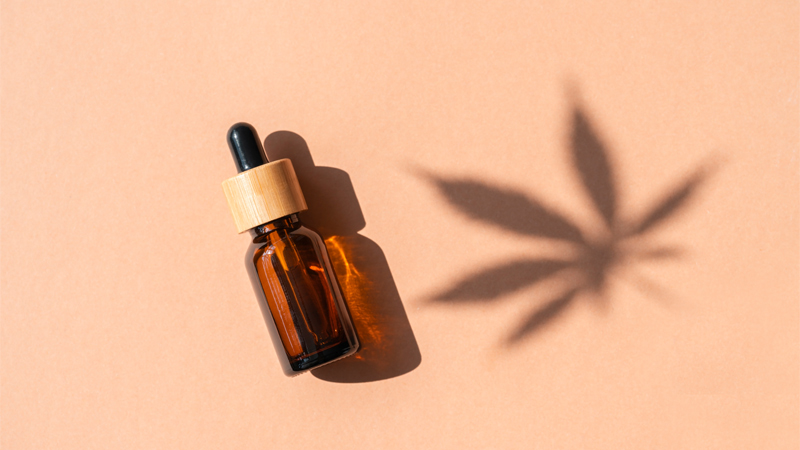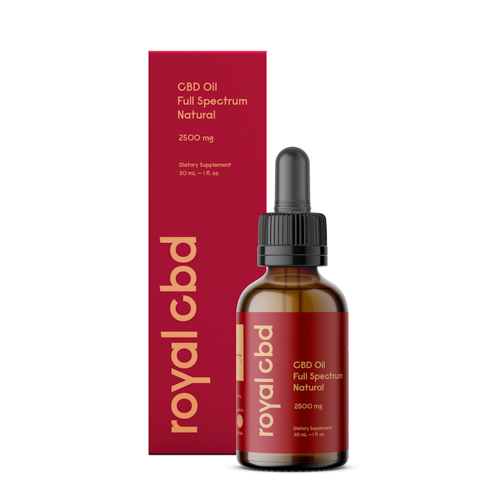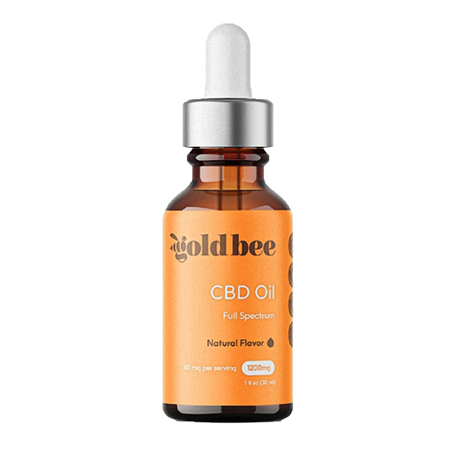A lot of people try CBD, and it does not work for them. Or, it doesn’t seem to work the first time. This will lead many of these people to conclude that CBD is just hype. However, before dismissing it completely, it will be wise to consider a few common reasons CBD may not work for someone.
Since each physiology is unique in nature, the effects of CBD vary somewhat from one to another. The dosage, tolerance, and build-up of CBD also matter.
What Is CBD?
CBD, commonly known as cannabidiol, is one of the active compounds found in the cannabis plant [1]. It belongs to a group of compounds called cannabinoids and is the dominant cannabinoid within hemp, based on its concentration and observed effects. It is a non-psychoactive compound that, unlike Delta-9 THC, does not create the typical “high” associated with marijuana.
CBD has a wide range of therapeutic applications, according to studies and user-reported data. It has synergistic relationships with other cannabinoids such as THC, CBG, CBN, and the huge variety of terpenes found in cannabis.
CBD is present in 40% concentration in the plant [2], with the unpollinated flowers having the highest amounts of it. CBD has possibly become the most studied phytocannabinoid, especially since the passing of the 2018 Farm Bill in the US.
What Are The Effects of CBD?
Both under research conditions and through their self-reported use, CBD users have shown significant improvements in pain tolerance, sleep quality, mood upliftment, and general well-being [2]. Research is still ongoing, and most of these effects haven’t been proven by rigorous clinical trials. However, positive results are steadily streaming out of CBD studies, and most researchers have recommended it as a potential therapeutic agent for a wide range of health problems.
Immediate effects of CBD are the lessening of anxiety, general relaxation throughout the body, reduction of pain, and more restorative sleep. Mild euphoric effects are also known to be common, especially in higher doses.
Researchers are currently investigating the potential of CBD oil for treating anxiety, depression, Alzheimer’s, cardiovascular problems, diabetes, gastritis, and a host of other illnesses. Initial results are promising, and further research is recommended in almost all cases.
How Does CBD Work In The Body?
CBD uses a unique network of neuroreceptors called the endocannabinoid system (ECS) [3]. This system is connected to all major functions of the body that regulate things like immune response, cardiovascular health, skin health, neurological health, the digestive system, and even cognition. It is through the ECS that delta 9-THC exerts its psychoactive effect. Using the same network, scientists have found CBD to take actions that may help treat various addictions and mental illnesses. And so it is being researched all over the world for its potent therapeutic effects that act through the endocannabinoid system.
CBD is mainly absorbed through the liver. It has been shown to compete with other compounds that need the liver to be metabolized (utilized) by the body [4].
Why Isn’t CBD Working for You?

Whether CBD does or doesn’t work for you depends on several factors, from the type of CBD to the cannabinoid spectrum to individual factors such as your body weight, metabolism, and tolerance to CBD.
Here’s why CBD may not work in your case.
CBD Concentration Is Too Low
Since CBD is a relatively new compound and the market is still catching up to the sudden upsurge in demand, products often do not have as much CBD as they claim to have. This results in an almost imperceptible dosage of CBD that fails to create any impact on the mind and body. As a result, people think that CBD doesn’t work at all (or at least for them).
It’s important to buy from reputable manufacturers who offer genuine lab-tested certificates that prove the concentration they advertise. Going through product feedback on neutral third-party platforms or getting recommendations from successful users are also good ways to verify the credibility of your vendor.
You’re Using Less CBD Than You Need
Even if the product is of high quality, the dosage may often be the issue. Since everyone has a different biochemistry and metabolic rate, the dosage of CBD can vary quite a bit. It is advised to start slow and then wait for the effect to build up within your system.
If it seems like CBD is not having any effect, gently increase the dosage in small steps, reassessing the effects. This way, you can understand how much CBD is suitable for your body at that moment.
CBD Needs To Be Built-Up In The Body
Sometimes, CBD must build up in the body through regular dosing. This gives the body a small and steady supply of CBD, which then produces the effects that the user is looking for. This requires some careful ramping up and down of daily dosing amounts and observing the short and long-term effects. After some time, you’ll be able to figure out what pattern and dosage is suitable for the effect they wish to create in the body and mind.
Regular dosing on a daily basis is necessary for those who wish to experience the long-term benefits of CBD.
You’re Not Being Patient
CBD takes time to pass through the system and start having an effect. It can thus take a while before any noticeable benefits make themselves apparent. The onset can be anywhere from a few minutes to an hour or so, depending on the person’s physiology. So if you are expecting instant results, this might be why it feels like CBD is not working.
Topicals may have a faster onset time if the solution has good penetration through the skin. However, it is likely to remain a localized effect in the area where it was applied. For a general effect across the body and mind, taking CBD orally is usually the best method.
For long-term benefits, use the product for at least a month or two — and observe the effects. If there are no changes, it may be time to switch to a different brand or product or try a higher dosage.
Change The Delivery Method
CBD comes in various forms. The most popular product types include CBD gummies, tinctures (isolate, full-spectrum, and broad-spectrum), vapes, capsules, soft gels, various edibles, topical salves, and even some beverages.
If you’ve been trying edibles or capsules and changing brands hasn’t helped, try using a more direct delivery method such as vaporization. Vaporizing CBD vape juice or using a dry herb vape to inhale vapors directly from cured hemp flowers will create a much faster onset of the CBD effects.
Additionally, flowers and full-spectrum CBD products contain the whole range of cannabinoids and terpenes that work hand-in-hand with CBD to enhance its health benefits — which is why regular users prefer this form of consumption
Other Medications Interfering With CBD
If you take any medications, you should not be using CBD. CBD uses the same metabolism pathway as most other medications [4], passing through the liver, where they get metabolized by the cytochrome P450 enzyme system. Drug-drug interactions between CBD and other pharmaceutical medications are mostly unknown and pending research. However, since CBD interferes with cytochrome P450, it can lead to excessive levels of the other substance due to improper metabolism, resulting in unwanted side effects. If you suspect CBD can interact with your medications, talk to a holistic physician before buying CBD oil.
Unique Physiology
Your individual physiology can make it difficult for CBD to exert its effects on the body and brain. The chances are low, but the possibility exists. If you’ve tried all the other methods and you still can’t feel any effects of CBD, it may be a sign that it’s time to look for alternative options.
You may have unique biochemistry that does not react to the presence of CBD in the system. The chances are low, but the possibility exists. If all other methods have been tried and there is still no sign of any effects of CBD, it may be time to quit CBD and look for alternatives.
You can try to give a long break to CBD and come back after a year or so. The body changes a lot over time, and so does the endocannabinoid system. If people can have a different tolerance to THC over time, regardless of how often they’ve been using it, CBD may go by the same token.
You’ve Bought CBD from a Scam Company
The problem with the CBD space is that it’s largely unregulated. Hemp-derived CBD products are considered “novel drugs,” and they’re fluctuating in a legal gray area between supplements and regular consumables. That’s why no official agency regulates the production and labeling standards on the market.
There are many scammers who don’t see much beyond their pockets and are trying to leverage the booming market to fill them with a lot of money. Unfortunately, they don’t pay a lot of attention to the safety of their customers.
Some companies sell fake oils that have no CBD at all, while others claim to provide higher concentrations than they actually do. There’s also a whole range of products contaminated with pesticides, poorly purged solvents, or heavy metals from the soil.
Others use the popularity of CBD to push seemingly attractive offers when they don’t produce or sell any products whatsoever. Most such companies just steal your data and hook you up on expensive subscription models — sending you products that you didn’t order.
These companies have been caught red-handed using dishonest practices and selling fake CBD products:
- Smilz
- Shark Tank CBD Gummies
- Eagle Hemp
- Pure Balance
- Green Galaxy
- Holistic Health
- Infinuity
- Nature’s Boost
- Premium Owl
- Grownmd
- Green Otter
- Green Earth
- Medigreens
- Sage Elixir
- Xoth
Best CBD Oils that Actually Work
1. Royal CBD

Get 15% off all Royal CBD products. Use code “CFAH” at checkout.
| Pros | Cons |
|
|
Royal CBD is a Nevada-based brand established in 2018 by a team of biohackers and cannabis aficionados with a mission to leverage industry standards and put an end to overpriced sub-par products.
Over the years, Royal CBD has grown from a small craft company to a true CBD powerhouse and one of the most reputable names in the hemp space.
The company uses non-GMO, pesticide-free hemp from Colorado farmers. The plants are treated with supercritical CO2, and the end product gets suspended in premium-grade MCT oil for improved absorption.
You can choose from the following products:
- CBD oils
- CBD capsules
- CBD edibles
- CBD gummies
- CBD honey sticks
- CBD topicals
- CBD cream
- CBD roll-on
- CBD for pets
- CBD pet oil
- CBD dog treats
Royal CBD provides updated lab reports for each format; the company sends them via email on request.
2. Gold Bee

| Pros | Cons |
|
|
Gold Bee offers all-organic CBD products infused with superfoods, which is the company’s previous niche. The company has partnered with local farmers to create their proprietary blend of terpene-rich CBD strains and make products that use the full potential of the entourage effect.
The company’s hemp is organic and similar to Royal CBD, Gold Bee employs supercritical CO2 extraction to ensure maximum purity among its CBD oils and other formats.
Speaking of which, the Gold Bee CBD collection includes:
- CBD oils
- CBD capsules
- CBD edibles
- CBD gummies
- CBD honey sticks
- CBD roll-on
- CBD for pets
- CBD pet oil
- CBD dog treats
You can easily access the certificates of analysis on the Gold Bee Website.
Conclusion
Research on CBD has shown that the compound holds great promise for treating different illnesses of the body and mind. However, it is still not a clinically tried-out compound, and hence there is a lack of proper standardization and manufacturing oversight.
The lack of regulation has given room for many fly-by-night vendors to thrive; such companies often sell low-quality, mislabeled CBD oil that contains little to no CBD — which is the first reason why CBD oil might not work for you.
Finding high-quality CBD products is paramount if you want to reap the health benefits, but sometimes, it may just as well be the formula or a particular potency option that isn’t working for you. If that’s the case, experiment with different product types and cannabinoid spectra to find your perfect match.
What is your first memory of CBD oil? Did it work for the first time? Or did you have to wait for a few days before you noticed the difference? Let us know by leaving a comment below.
Sources:
- Zuardi, A. W. (2008). Cannabidiol: from an inactive cannabinoid to a drug with a wide spectrum of action. Brazilian Journal of Psychiatry, 30, 271-280.
- Thakkar, K., Ruan, C. H., & Ruan, K. H. (2021). Recent advances in cannabidiol studies in medicinal chemistry, pharmacology, and therapeutics. https://www.future-science.com/doi/full/10.4155/fmc-2021-0125 [1]
- McPartland, J. M., Duncan, M., Di Marzo, V., & Pertwee, R. G. (2015). Are cannabidiol and Δ9‐tetrahydrocannabivarin negative modulators of the endocannabinoid system? A systematic review. British journal of pharmacology, 172(3), 737-753. https://bpspubs.onlinelibrary.wiley.com/doi/full/10.1111/bph.12944 [2]
- Jiang, R., Yamaori, S., Takeda, S., Yamamoto, I., & Watanabe, K. (2011). Identification of cytochrome P450 enzymes responsible for the metabolism of cannabidiol by human liver microsomes. Life sciences, 89(5-6), 165-170. https://www.sciencedirect.com/science/articl2e/abs/pii/S0024320511002645 [3]